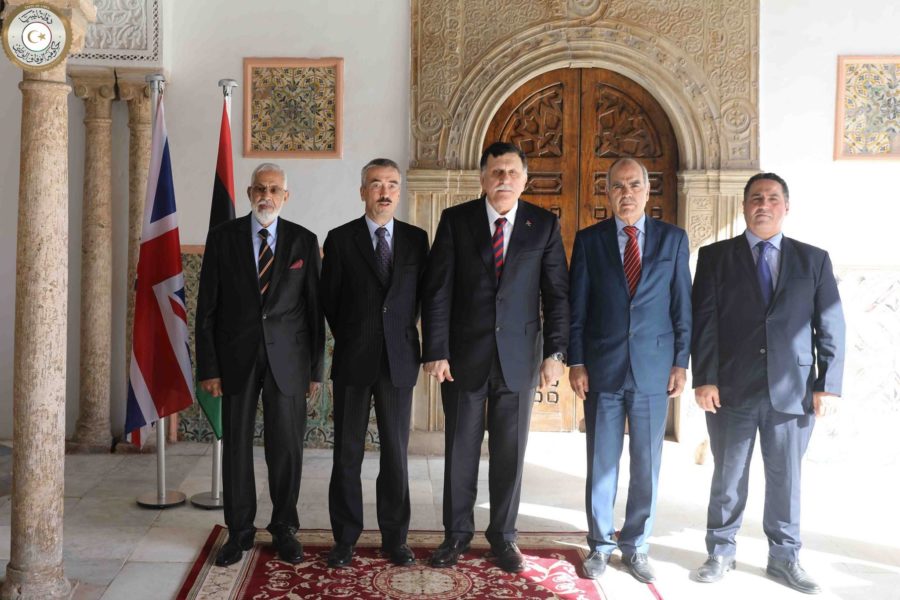Last weekend I had the enormous honour of presenting my credentials to Prime Minister Fayez Serraj in Tripoli. Four other European Ambassadors presented their credentials at the same time.
What does this mean? And why is it important? Ambassadors are formally appointed by their Head of State and are given letters of appointment. These letters ask the receiving government “to give entire credence” to what the Ambassador communicates to them.
I therefore carried two letters, both signed by Her Majesty Queen Elizabeth II. The first recalled my predecessor; the second announced the choice of “Our Trusty and Well-Beloved” Peter Millett as “Ambassador Extraordinary and Plenipotentiary.”
Presenting credentials requires protocol. The Libyan Ministry of Foreign Affairs did an excellent job to ensure that the ceremony ran smoothly.
Towards mid-day, I arrived at the Red Fort in the centre of Tripoli, next to Martyrs Square. The fort is one of the oldest buildings in Tripoli and dates back to Roman times. I was ushered to a reception room whose ornate architecture was clearly Ottoman.
At the appointed moment, I walked with the protocol officers round the upper ramparts of the castle. In the distance, I could hear the sound of bagpipes. On a large open area at the top of a castle, a bagpipe band was playing marching music. A military band played the Libyan national anthem with great gusto.
Inside the fort, I stood before Prime Minister Serraj and Foreign Minister Siala. I delivered a short speech recalling the history of the UK’s relations with Libya from the Second World War, Independence in 1951 and the revolution in 2011.
I gave examples of the programmes we were carrying out to help the Government of National of Accord deliver essential services and help improve the living conditions of the Libyan people. I made clear that the British Government stands ready to support the GNA’s efforts to alleviate the Libyan people’s suffering and restore Libya’s stability and prosperity.
I then handed over my letters to the Prime Minister. The PM in turn gave a speech welcoming me and sending best wishes to the Queen and Prime Minister Theresa May. After a short conversation, I made my way out, stopping for the Libyan orchestra to play God Save the Queen.
At the exit, I made a short statement to the press, underlining our commitment to help rebuild Libya. I was asked about the East and made clear that the unity of Libya is the most powerful weapon the Libyan people have to confront the challenges they are facing.
So what? Does the pomp and circumstance mean anything in today’s modern world? Does the ancient practice of sending Ambassadors abroad matter in the age of the Internet, Viber and air travel?
Of course it does. Firstly, the fact that the representatives of the UK, France, Germany, the Netherlands and the European Union proudly presented their credentials together is a powerful signal of European commitment to the long-term future of Libya.
Secondly, while the key decisions on the future of Libya are for the Libyan people, we want to help the GNA to improve the living conditions of the Libyan people. We can offer programmes of support: training, advice, equipment.
Thirdly, no country in the world can handle today’s challenges alone. Terrorism, organised crime, the environment: all these issues require international co-operation.
What next? We will increase the presence of Embassy staff in Tripoli, talk to people, visit different parts of the country and engage with the GNA on programmes of tangible assistance. Talking to someone doesn’t mean that we support them, but that we want to understand their views. Equally, offering assistance doesn’t mean that we are conspiring to steal Libya’s wealth. We just want to help rebuild the country and establish stability.
Presenting credentials was just the start of that new journey.

